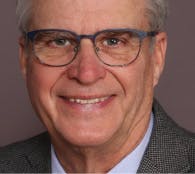Transitions Roundtable: We ask two experts the same question on a complex issue.
Question: I want to stay on for about a year after I sell my practice. Should I be paid a flat rate base plus commission?
Tom Snyder, DMD, MBA
Since you’re planning to be employed for one year, the method you mention will be best for you. This approach gives you some guaranteed income for those days that you are scheduled, plus, you can be rewarded for being productive. A flat rate payment is a more common form of compensation when the seller plans to remain only for several months.
We have often found that selling doctors are not asked to make any significant contributions to clinical production if retained only for a short time. Typically, the major tasks for this brief post-sale engagement are case completion and patient introductions. I assume that the new owner is expecting you to contribute to the practice in a meaningful way. This combined compensation approach can also incentivize the new owner to ensure that you have adequate patients in order for you to cover the flat rate payment, but more importantly, earn additional income for being productive.
Another key to your success in remaining for one year is to have a sufficient supply of patients that can be allocated between you and the new owner. If this is not the case, it may prove to be problematic. The issue that you face with insufficient patients is similar to the scenario when a new associate joins a practice with inadequate patient flow, which often results in the associate leaving the practice after a few months.
Also, remember that the new owner will enjoy the profits generated from your clinical efforts. This can be very beneficial to practice cash flow, thus helping the new owner pay the practice acquisition loan, especially during the first year of ownership. Often times business failures occur within the first year of ownership, so your employment can only help mitigate that.
C. STEVEN WOLFF, DDS
Well, Doc, depending on the structure of your sale and transition, my answer to that question may surprise you. That model, known as “having your cake and eating it too,” may not be as feasible as you think. What seller wouldn’t envision having the money from his or her practice sale in the bank and then be able to continue to collect dividends from the practice? In those cases where you’re selling the practice to an associate doctor who has been around for a few years, you may be able to swap places with the person for a short while.
The method of payment that was fair for the buyer should also be fair for you. I should warn you, however, that when we have created situations like this they have not always been successful, even for just a year. There are a number of issues related to the former owner staying in the practice besides just financial considerations. Staff loyalty can be problematic, as can patient acceptance of having to see a new doctor when the old one is still there. Frankly, while the thought of a long glide path into retirement might feel good to you, there is not much benefit in this situation for most qualified buyers.
The 800-pound gorilla in the room, however, is the cash flow. If you are selling your practice outright to a new owner, there is not likely to be enough money flowing through the practice for the buyer to pay the usual and customary overhead, his or her student loan debt, the practice acquisition debt, and you without taking money directly from his or her ability to make a living. If a buyer was qualified clinically and financially to acquire your practice, you are probably just in the person’s way. Frankly, even a lender may balk at funding the transaction if they feel having you on board compromises the ability of their client to meet his or her obligations.
So, what to do? If you need the revenue to polish off your retirement account, the obvious answer may be to just work another year, sell your practice, and walk away. If money is not the driver and you feel the right candidate has come along at just the right time, sell the person the practice and get out of the way. If the buyer needs your help, he or she can call you, but I would not spend too much time waiting by the phone.
Tom Snyder, DMD, MBA, is the director of transition services for Henry Schein Professional Practice Transitions. He can be reached at (800) 988-5674 or [email protected].
C. Steven Wolff, DDS, is president of ADS Mid-America Dental Practice Sales, with sales in Missouri, Kansas, Nebraska, and Iowa. He has been a licensed dentist in Missouri since 1977. He is the current president of ADS Transitions Inc. He can be reached at (800) 311-2039.


